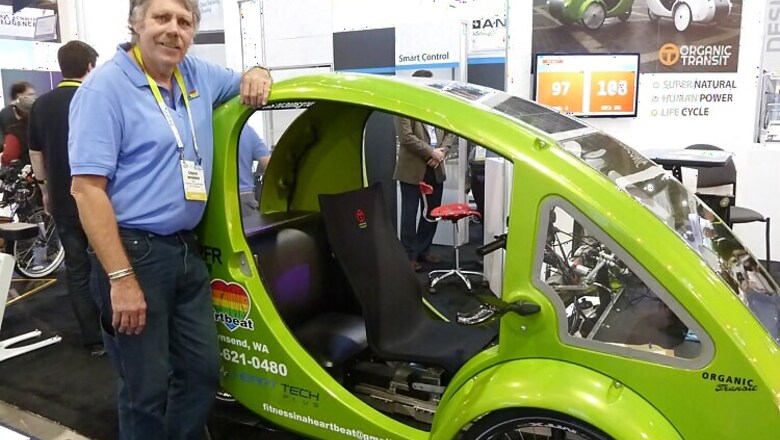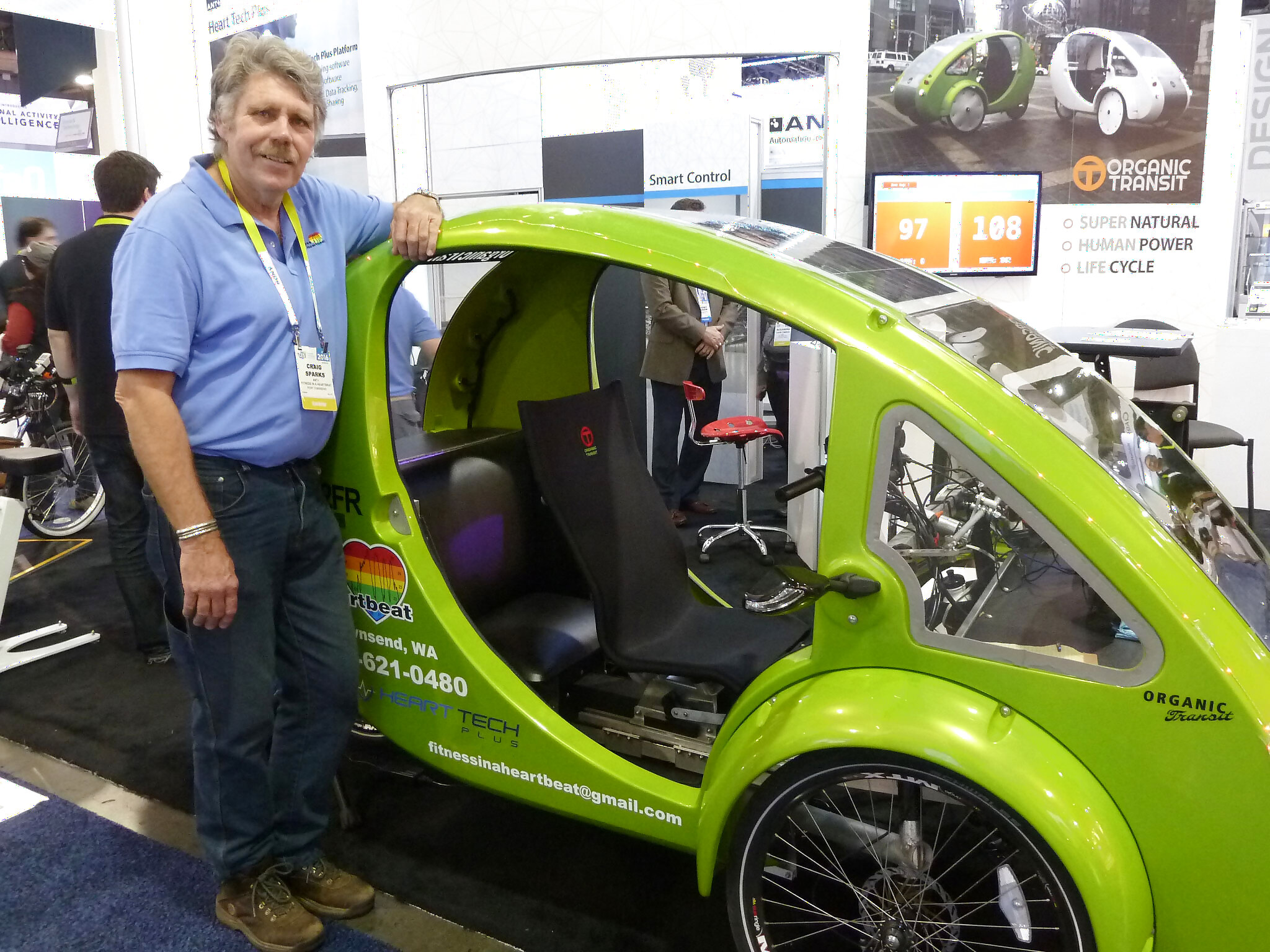
views
Las Vegas: Is it a car, a bike or some other kind of contraption? It looks like an inverted tricycle with an egg-shaped shell.
The makers of the Elf vehicle tout it as the future of environmentally friendly urban transport, combining pedal power with battery propulsion and solar charging.

Take a look inside: there are no doors or floorboards, making it appear like a car that came out of a "Flintstones" cartoon.
"We believe in human-powered mobility," said Craig Sparks, showing off the vehicle from startup Organic Transit at the Consumer Electronics Show in Las Vegas.
"This is a town runner. You can run your errands, go to the grocery store. You don't need a car."
The price tag starts at $7,000 but it pays for itself because it uses no fuel, he said.
You start it up with a modified bicycle pedal crank, and steer and brake with handlebars. The battery kicks in to take it up to a speed of some 40 kilometers (25 miles) per hour.
The Elf has a solar panel on the roof that charges the battery, which offers a range of around 50 kilometers (30 miles) -- or more, if you are willing to pedal.
Sparks said the Elf is "street legal" and requires no registration or insurance, with federal rules classifying it as a bicycle. But some state or local rules may be different.
In terms of technology, El uses a Trylon plastic body and aluminum frame and features "dynamic dampening suspension."
The motor and pedal system operate independently. It uses lithium-ion manganese batteries and has an optional continuously variable transmission. In future versions, Sparks said the devices will use pedal power to charge the batteries.
The company has been selling them over the past year online and plans to ramp up production.
"Our costs will come down," he told AFP. "Right now we produce around 20 per week and there is a long waiting list."
But he said the company has no plans to sell itself to another manufacturer for mass production.
"If we got a million orders today, a lot of those people could just have to wait," he said.




















Comments
0 comment